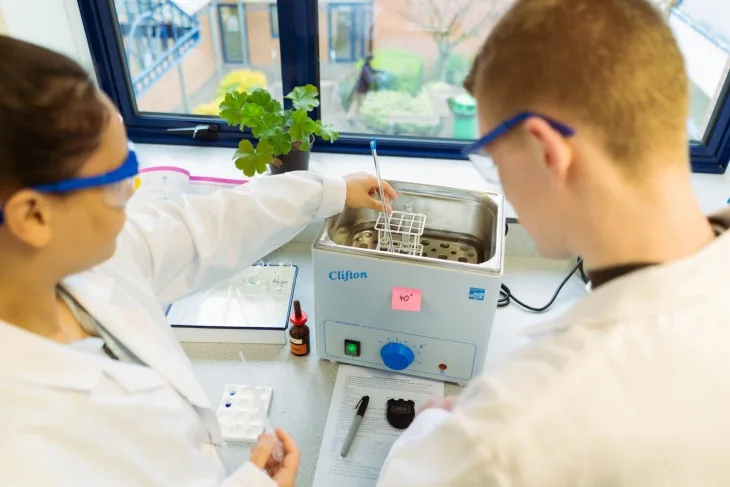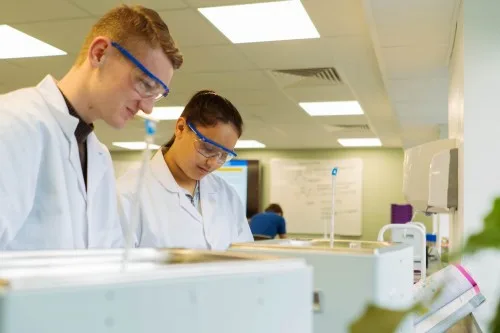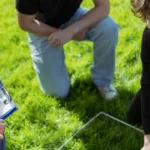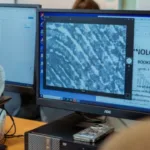
Environmental Science
Environmental issues are often in the news and play an increasingly important role in almost every aspect of life, from human population to recycling.
Environmental Science A Level
Studying Environmental Science will help you to understand how the world works.



What does the course involve?
Environmental Science applies scientific principles to the natural environment to help us to understand and manage it. You will develop your powers of analysis using scientific methods to see how environmental problems could be solved.
The key to doing well is to be able to make links between cause and effect.
Please note: Core Maths must be studied alongside this course, unless you are also studying Mathematics or Statistics.
Assessment
Qualification
A Level
Awarding Body
AQA
Entry Requirements
As a minimum you will need:
- Grades 5/4 or B/C in GCSE Combined Science (or equivalent in two separate sciences);
- Grade 5 or B in GCSE English;
- Grade 4 or C in GCSE Maths.
Equivalent qualifications may be accepted; please ask at enrolment.
You will also need:
- An interest in the natural environment.
- A desire to understand how the natural environment works.
Year One
The course develops a foundation of scientific knowledge and skills associated with the environment and how it works.
You will study the four main life support systems which are essential for life on Earth: the Biosphere, Atmosphere, Hydrosphere and Lithosphere:
The units studied are:
- Research Methods.
- The Living Environment.
- The Physical Environment.
Year Two
You will apply your knowledge to understand how different environmental principles are linked. You will study the use of our natural resources to supply the energy, materials and food we need:
The units studied are:
- Energy Resources.
- Pollution.
- Biological Resources.
- Sustainability.
- Research Methods, including Experiment Design.
Trips
Trips include: The Elan Valley, a Zoo, local rivers and nature reserves and a large farm. Prices vary from free to £30.
There is also an optional residential trip to Arran, which costs approximately £600.
Career path
Environmental Science will give you an A level in a Science subject, to help you gain a place on a degree or technical course, or an apprenticeship.
There are many courses with environmental content, from land management to environmental health, climate science to conservation biology.
Environmental Science is also relevant to primary school teaching, veterinary medicine, architecture and agriculture, amongst other careers.
I chose to study Environmental Science at Hereford Sixth Form College because it’s not really a subject that is offered elsewhere at A Level… I’ve always have a passion for climate change and the planet and how everything interconnects so when I saw the Prospectus that’s what really drew me here.
Darce
































































